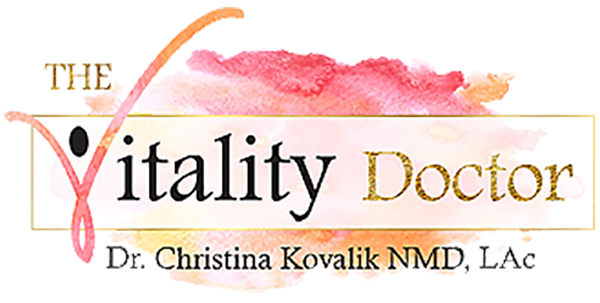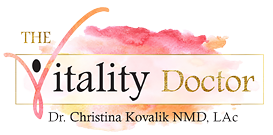Vaginal dryness is a common condition that can affect women of all ages but is most often associated with lower estrogen levels, especially during menopause. This condition can impact a woman’s quality of life, including daily activities, sexual health, and overall well-being. The good news is that there are numerous treatment options—both medical and holistic—to improve vaginal health and alleviate symptoms.
What Causes Vaginal Dryness?
The most common cause of vaginal dryness is a lack of estrogen, the hormone responsible for maintaining the natural lubrication and elasticity of the vaginal tissue. Lower estrogen levels can result from several factors, including:
- Menopause or perimenopause
- Breastfeeding
- Anti-estrogen medications, such as aromatase inhibitors
- Birth control pills
- Cancer treatments like chemotherapy or radiation therapy
- Certain health conditions, like genitourinary syndrome of menopause (GSM)
- Stress or lack of sexual stimulation
Other causes of vaginal dryness include the use of harsh soaps, bubble baths, and some personal hygiene products that disrupt the natural balance of the vaginal area. Additionally, younger women may experience vaginal dryness due to hormonal imbalances or certain medical treatments.
Recognizing Symptoms of Vaginal Dryness
Symptoms of vaginal dryness can vary in severity but often include:
- Discomfort or itching in the vaginal area
- Burning sensation or irritation around the vaginal opening
- Painful intercourse (dyspareunia)
- Vaginal discharge that is thinner or less frequent
- A feeling of tightness in the vaginal canal
- Decreased vaginal lubrication during sexual activity
- Urinary symptoms, such as increased urinary tract infections
If you’re experiencing any of these symptoms, it’s important to consult a healthcare provider. A pelvic exam can help determine the cause and rule out other medical conditions, such as atrophic vaginitis or symptoms of vaginal atrophy.
Holistic and Natural Treatments for Vaginal Dryness
For women looking for non-hormonal treatments or holistic approaches, there are several options to restore vaginal moisture and improve vaginal health naturally:
- Vaginal Moisturizers and Lubricants
– Water-based lubricants: These are safe and effective for alleviating discomfort during sexual intercourse. Look for options without harsh chemicals or fragrances.
– Oil-based lubricants: While longer-lasting, they may not be compatible with condoms.
– Vaginal moisturizers: Applied regularly, these can help maintain the natural lubrication of the vaginal walls and tissue.
- Hydration and Diet
– Staying hydrated supports blood flow and natural lubrication. Incorporating foods rich in omega-3 fatty acids, like salmon and flaxseed, can also promote vaginal health.
– Phytoestrogens, found in soy and flaxseed, may help balance hormone levels naturally.
- Lifestyle Changes
– Avoid irritants like bubble baths, harsh soaps, and scented products.
– Engage in regular sexual activity or use vaginal dilators to increase blood flow to the vaginal area. - Alternative Medicines and Therapies
– Acupuncture and herbal remedies have been used to support hormone health and alleviate menopausal symptoms, including vaginal dryness.
– The “Mona Lisa Touch,” a laser treatment, is a non-invasive option for stimulating collagen production in the vaginal lining.
Medical Treatments for Vaginal Dryness
For those who require medical interventions, there are several hormone therapy options:
- Vaginal Estrogen Therapy
– Low-dose estrogen creams, such as estradiol, are applied directly to the vaginal tissue to improve vaginal lubrication and elasticity.
– Vaginal estrogen tablets and rings offer localized hormone delivery with minimal systemic side effects. - Systemic Estrogen Therapy
– Hormone replacement therapy (HRT) can be used to treat multiple menopausal symptoms, including vaginal dryness, hot flashes, and night sweats. - Non-Hormonal Treatments
– Vaginal lubricants and moisturizers remain an excellent option for women who cannot or prefer not to use hormone therapy.
– For those undergoing cancer treatment or taking anti-estrogen medications, consulting with a medical director or healthcare provider can help identify the best option for managing symptoms.
– Radiofrequency- Vitalia treatments use RF therapy to induce collagen regeneration to help tighten and restore vaginal tissues.
When to Seek Medical Advice
If you’re experiencing persistent symptoms of vaginal dryness, painful sex, or urinary symptoms, it’s crucial to consult a healthcare provider. A thorough medical history and pelvic exam can help identify the underlying causes and determine proper treatment. Women with a history of breast cancer or those taking aromatase inhibitors should discuss their options carefully due to the potential risks of hormone therapy.
Improving Your Quality of Life
Addressing vaginal dryness isn’t just about alleviating physical discomfort; it’s also about improving your overall quality of life. Whether through natural lubrication, hormone replacement therapy, or holistic treatments, finding the right approach can enhance your sex life, reduce urinary tract infections, and alleviate daily discomfort.
Final Thoughts
Vaginal dryness is a common problem that affects at least half of women during menopause, but it can also impact younger women and those undergoing specific medical treatments. The lining of the vagina, vaginal walls, and vaginal tissue all play a vital role in maintaining vaginal health and comfort. By understanding the causes of vaginal dryness and exploring various treatment options—both natural and medical—you can find relief and reclaim your confidence. Remember, seeking advice from a healthcare provider is the first step toward proper treatment and improved well-being.
To find out more Call Dr. Kovalik
480-948-9000 TO BOOK OR BOOK NOW

